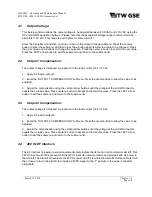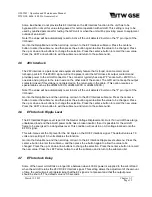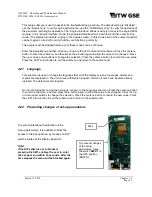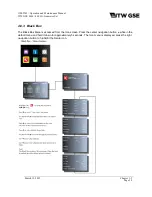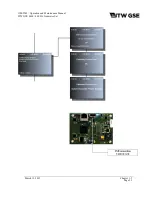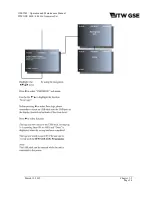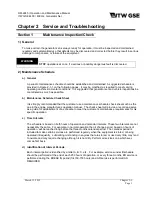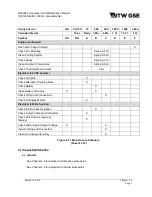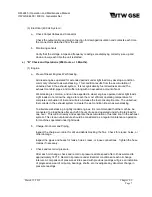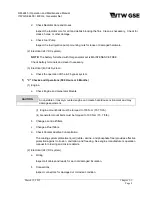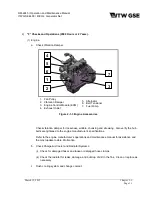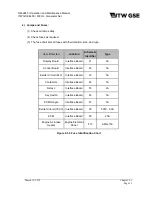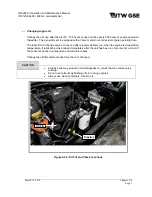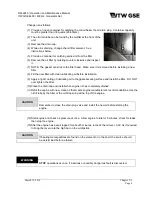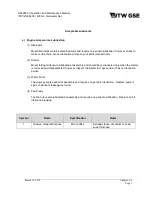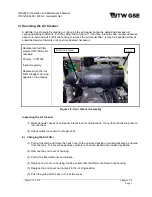
OM-2245 / Operation and Maintenance Manual
ITW GSE 4400 / 400 Hz. Generator Set
March 15, 2015
Chapter 2-1
Page 4
b) “AR” Checks and Operations (As Required)
(1) Engine
a
Change Air Cleaner
Replace the air filter when the “Air Filter Clogged” warning is displayed. These filters should
not be washed because washing breaks down the material inside the filters.
b
Check and tighten, as required, all coolant hose clamps, air intake hose clamps and exhaust
clamps. Check all coolant hoses, air intake hoses and exhaust pipes for leaks.
(2) Electrical System (24 VDC) – Check Battery Terminals
Periodically, open the battery compartment panel in the right cable tray and visually check the
battery cable connectors and battery posts. If corrosion is observed, disconnect the cables and
clean battery posts and connectors with a wire brush or special battery post-cleaning tool. Coat
the posts and connectors with a light film of petroleum lubricant before reconnecting the cables.
(3) Electrical (400 Hz System) -- Check Output Voltage
Check the output voltage and be sure it is set for 115 VAC ± 1 V. Adjustment can be made using
the Setup menu. (See Chapter 1-3, paragraph 4.1.)
c) “BR” Checks and Operations (Break-In Period, Once After 50-150 hrs.)
The following procedures are precautionary measures taken on most new engines. If a problem
occurs with any of the following issues, be sure to recheck it after the next 50-150 hours.
(1) Engine
a
Check for leaks and correct. This involves an overall inspection of the engine and may
require some maintenance if leaks are found. Refer to the engine manufacturer’s operations
manual for assistance.
b
Change all fuel filter elements. Metal shavings from the new fuel tank can clog the filter.
c
Change crankcase oil. New engines often release metal shavings more frequently.
Therefore, the crankcase oil must be changed as a precautionary measure.
d
Change oil filter element. The oil filter should be changed with the oil.
e
Check engine and generator mounts to ensure they are properly installed and they have not
worked loose. (Torque is set at 100 N-m, 73.7 ft-lb.).
f
Check coolant additive concentration. Refer to the engine manufacturer’s operations manual
for assistance.
g
Steam clean the engine to free it of oil and dirt to prevent uneven engine cooling “hot spots”.
The oil and dirt can also fall into the engine and fuel system when covers are removed during
repair work.
h
Inspect the water pump weep hole for indication of a steady leak. If a steady flow of coolant
or oil is observed, replace the water pump with a new or rebuilt unit. Refer to the engine
manufacturer’s operations manual for assistance.

